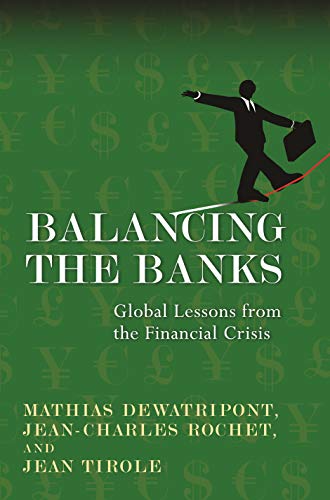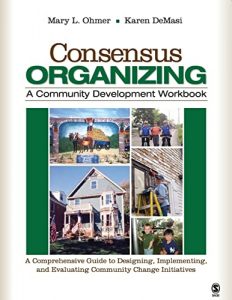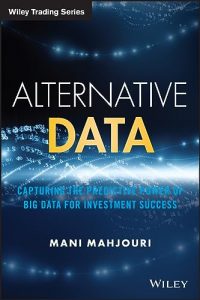1. Balancing the Banks: Global Lessons from the Financial Crisis
Authors: Dewatripont, Mathias; Rochet, Jean-Charles; Tirole, Jean; Tribe, Keith
This insightful book dissects the lessons learned from the global financial crisis, making it a compelling read for anyone interested in understanding the intricate web of global banking systems. The authors, who are renowned experts in finance, provide a comprehensive analysis of regulatory frameworks and economic policies that shaped the crisis. With concepts simplified for clarity, it serves as an essential guide for policymakers, students, and finance professionals alike. Dive deep into the reasons behind major failures in the banking industry and the steps necessary to ensure resilience in financial systems.

2. Performance Measurement Systems in Banks
Authors: Munir, Rahat; Baird, Kevin
This book examines the crucial role of performance measurement systems in banks, presenting a detailed framework that helps institutions enhance their operational efficacy. Munir and Baird delve into various methodologies that banks can adopt to assess their services effectively and drive improvement. Its structured approach, coupled with real-world examples, makes it invaluable for banking professionals who are navigating the challenges of performance measurement in the dynamic financial landscape.

3. Democracy and Diversity in Financial Market Regulation
Author: Dorn, Nicholas
Nicholas Dorn’s comprehensive work on the diversity of regulatory frameworks in financial markets sheds light on the imperative for democratic engagement in finance. He argues that financial regulation should reflect diverse interests and perspectives to ensure fairness and inclusivity. This book is crucial for regulators, economists, and financial professionals dedicated to fostering a more equitable financial system. Dorn’s eloquent writing coupled with vast research makes a strong case for the need for diverse regulatory practices.

4. Credit Risk: Models, Derivatives, and Management
Author: Wagner, Niklas
Wagner’s examination of credit risk provides essential insights into the frequently complicated field of risk management. This book elegantly balances theoretical models with practical applications, making it a must-have for finance professionals seeking a deeper understanding of derivative instruments and their role in credit risk management. The depth of analysis is paired with accessible explanations, catering to those looking to elevate their understanding of credit markets and risk assessments.

5. Governance and Control of Financial Systems: A Resilience Engineering Perspective
Authors: Sundström, Gunilla; Hollnagel, Erik
This thought-provoking book provides a unique perspective on governance and risk control, emphasizing resilience engineering in financial systems. Gunilla Sundström and Erik Hollnagel explore frameworks that support operational resilience, which is vital for modern banks operating in uncertain environments. Their interdisciplinary approach invites professionals from diverse backgrounds to engage with critical concepts around governance and control, making it a cornerstone resource for those looking to innovate in financial governance.

6. Redefining European Economic Governance
Authors: Chang, Michele; Menz, Georg; Smith, Mitchell P.
This book stands as a critical analysis of the existing economic governance frameworks in Europe. The authors tackle pressing issues that challenge policymakers and provide a roadmap for redefining governance models to better serve the EU’s complex needs. Adeptly structured and filled with insightful commentary, it serves as an essential text for scholars, policymakers, and anyone with an interest in the future of European economic stability.

7. Operational Risk Modelling and Management
Author: Franzetti, Claudio
This detailed examination of operational risk modeling emphasizes its importance in maintaining the integrity of financial institutions. Claudio Franzetti provides readers with tested frameworks and practical management strategies to help mitigate risks effectively. With the increasing reliance on technology and data in the banking sector, understanding operational risks has never been more relevant. This book is essential for finance professionals aiming to improve their organizational resilience.

8. Financial Stability and Prudential Regulation
Author: Lui, Alison
Alison Lui’s comparative analysis of financial stability across different jurisdictions is a groundbreaking work that explores the necessity of prudential regulation in ensuring systemic stability. This book provides a nuanced understanding of how different countries approach financial regulation, which is invaluable for regulators, academics, and industry practitioners seeking to understand global regulatory best practices. It’s a definitive guide for anyone interested in the intersection of regulation, finance, and economic stability.

9. Banking Resilience and Global Financial Stability
Authors: Sabri Boubaker; Marwa Elnahass
Set against the backdrop of evolving banking practices, this book investigates the interplay between banking resilience and global financial stability. The authors analyze contemporary challenges and propose innovative solutions that can enhance the stability of financial institutions. Their work is particularly timely as we navigate a rapidly changing financial landscape, making it a significant addition to the literature for economists and banking professionals.

10. Financial Globalization: The Impact on Trade, Policy, Labor, and Capital Flows
Author: International Monetary Fund
This compilation of articles offers a multifaceted view of financial globalization and its repercussions on various aspects of the global economy, including trade and labor. Produced by the IMF, the content is rich with empirical data and insightful analysis that will benefit students, researchers, and policymakers. Understanding these interconnections is crucial in today’s globalized world, making this book an important read for anyone involved in international finance.





































